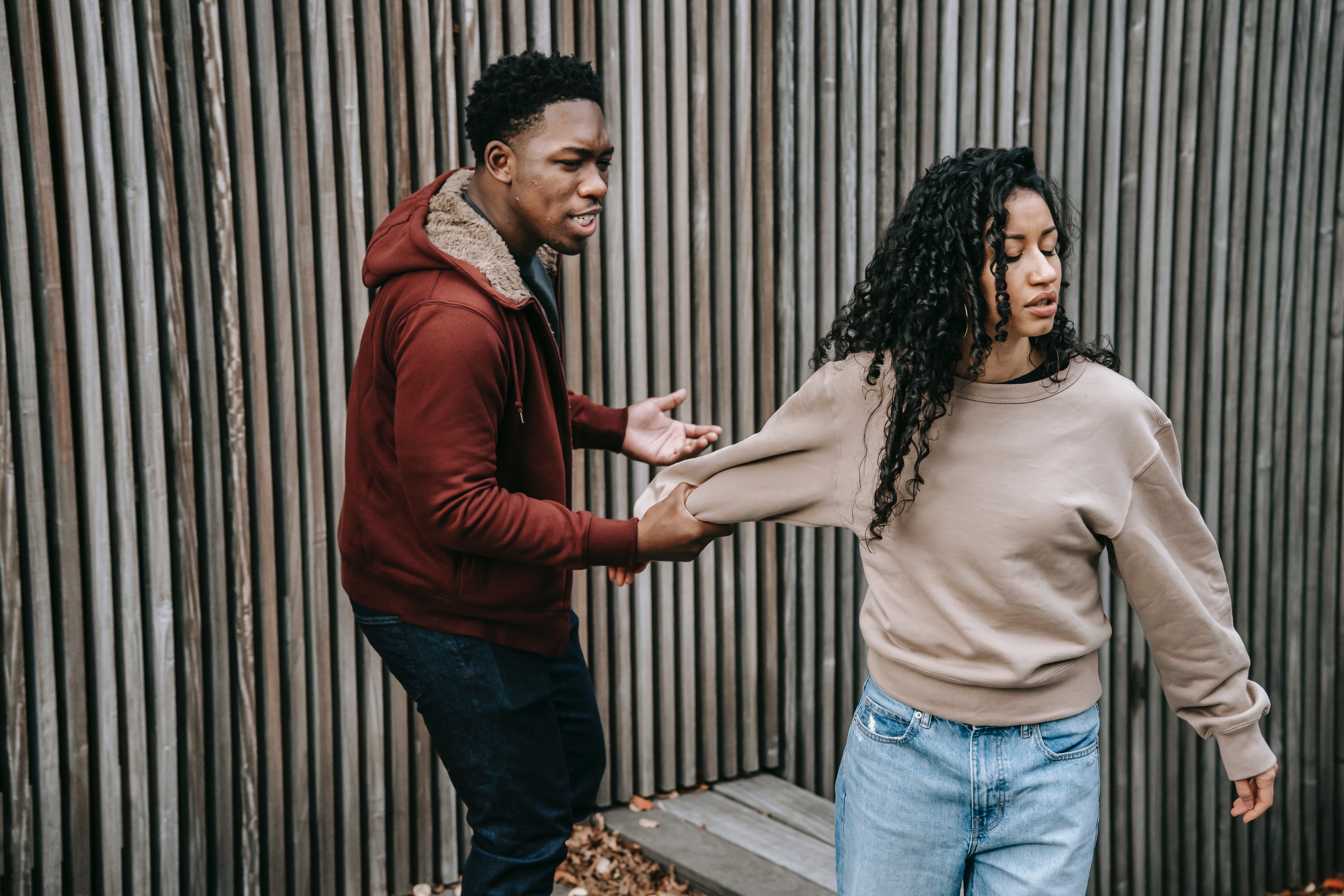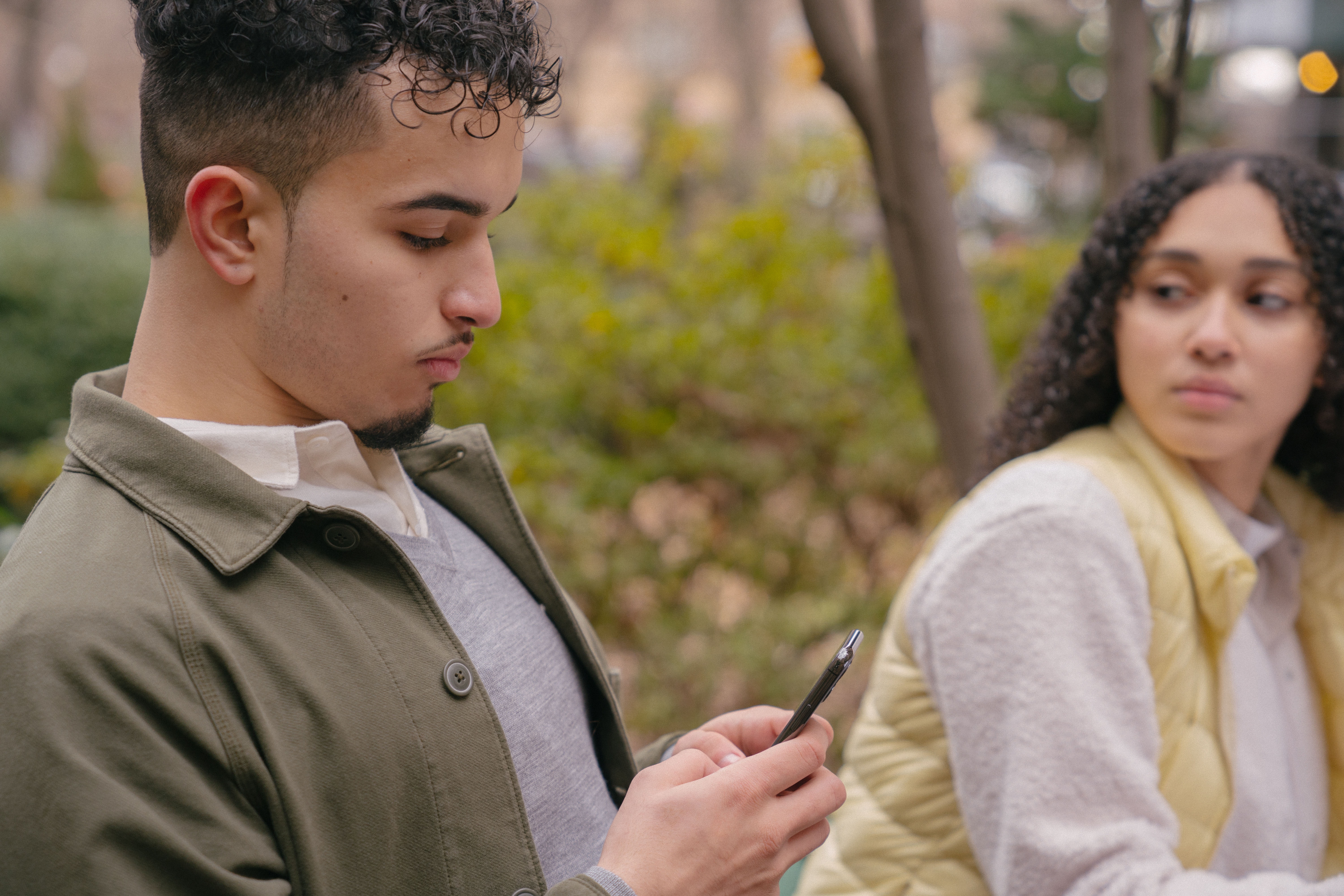
20 Signs You Have Relationship Anxiety (And How to Cope)
When you first start dating someone, you’re bound to feel some anxiety (and all the butterflies). After you’ve been together a while, these feelings usually start to subside as you become more comfortable. That said, there are times when someone might still feel overly anxious in a relationship, so much so that it starts to put any positive aspects on the back burner.
Here are 20 signs you might be experiencing relationship anxiety (and how to deal with it):
1. Wondering if you matter
If things are going well in your relationship, and your partner is paying attention to your needs and prioritizing you and your time, then there’s no need to worry about whether or not you matter to your partner! If you’re still worried, it might be linked to lower self-esteem. Addressing any self-esteem or self-worth issues isn’t easy, but it’s necessary to get your relationship back on track (and help you feel more confident about it).
2. Questioning your partner’s feelings
Once you’ve decided to commit to each other in a relationship, you shouldn’t doubt your partner’s feelings for you. Instead, try to take the relationship itself as a testament to and proof of their feelings.
3. Waiting for something to go wrong
People with relationship anxiety often feel like things in their relationship are “too good to be true”, and expect things to take a sour turn at any moment. While this certainly can happen in a relationship, most of the time things will not go wrong out of the blue! If your anxious feelings stem from past relationship traumas (perhaps a time when things really did start going wrong out of the blue), then it’s important to address them so that the past doesn’t create problems in your current relationship.

4. Doubting your compatibility
After the initial honeymoon phase of a relationship wears off, it is possible that general incompatibilities will arise as you learn more about each other. But most of the time, initial compatibility will outlast the honeymoon phase and your relationship will thrive.
5. Avoiding relationship milestones
People with relationship anxiety are often deeply afraid of rejection. This fear will cause them to avoid important relationship steps, like having sex, saying “I love you,” or meeting each other’s friends and family. This can prevent your relationship from growing and can end up really hurting your partner’s feelings. It’s important to look forward to these milestones and realize they’re a testament to your love for each other!
6. Comparing your relationship to others
If you have relationship anxiety, you might be tempted to compare your current relationship to past relationships, your friend’s relationship, or your idealized version of relationships. This kind of behavior will make it impossible for your partner or your relationship to succeed. To cope with this, focus more of your energy on your relationship rather than on comparisons.
7. Looking for reasons to break up
People with relationship anxiety get so anxious that they start looking for reasons to break up (even if the relationship is going well). Instead, think of all the things you are grateful for in the relationship and why you are glad that you are with your partner. Staying positive and actively working to affirm your relationship will help you feel less anxious about it.

8. Sabotaging the relationship
Some people with relationship anxiety go even further than looking for reasons to break up, and actually sabotage the relationship. This stems from a fear that “things won’t work out anyway.” If this is the case, reflect on what is motivating you to do so. Are you insecure about your partner’s feelings? Do you doubt your compatibility? Or do you actually want the relationship to end because you are not feeling fulfilled?
9. Constantly thinking your partner wants to break up
The fear that your partner wants to break up is normally completely unfounded and can put unnecessary stress on the relationship. There are normally clear signs that a relationship isn’t going well or that your partner is unhappy and might want to end things. In the absence of these signs, take your relationship at face value and trust that your partner wants to be with you.
10. Over-analyzing their words
People with relationship anxiety often put too much stock into little things that their partners say. It is important to hold your partner accountable for things that they say, but be sure not to over-analyze off-hand comments. Try and cope by taking things at face value and asking for clarification or elaboration if there seems to be a disagreement.
11. Over-analyzing their actions
People with relationship anxiety will often over-analyze their partner’s actions as well, reading into a slammed door or a weird voicemail. If you find yourself obsessing over little things your partner is doing, the best way to cope is to ask them if everything is alright. Bringing up a specific incident that is causing your anxiety and sharing how you interpreted it can help you and your partner navigate similar situations moving forward.
12. Missing out on good times
People with relationship anxiety are often so worried about things going awry that they miss out on all the good times in the relationship. All serious relationships will go through rough patches, which is why it’s so important to enjoy the good times when they’re here. Focusing on staying present in the relationship and not fretting about the future will help you cope with this relationship anxiety.
13. Constantly needing reassurance from your partner
Low self-esteem can often be a cause of relationship anxiety and manifest as needing constant reassurance from your partner (their feelings for you, your worth in the relationship, etc.). Providing this kind of constant reassurance can be taxing on your partner. Addressing feelings of low self-esteem is crucial in order to cope with this type of relationship anxiety.
14. Clinginess
Relationship anxiety can sometimes stem from differences in attachment style. There are four different types of attachment styles ranging from secure to more and more insecure. If you have an insecure attachment style, you might feel the need to cling to your partner out of fear that they will leave you. Getting to the bottom of your attachment issues may help you reduce relationship-related anxiety.
15. Checking your partner’s texts
People with relationship anxiety often are not able to fully trust their partners, often due to past relationship trauma. The irony is that looking through your partner’s texts behind their back actually makes you untrustworthy! Instead of invading your partner’s privacy, you should try to open up a dialogue about trust and honesty so that you are both on the same page.

16. Self-silencing
People with relationship anxiety will often shy away from voicing their own opinions, preferences, or needs, out of fear that it will contradict their partner. They are afraid that any disagreement could lead to the end of the relationship. But no matter how compatible you and your partner are, you’re going to have different opinions on some things, and it’s important to express them so that you have a voice in the relationship.
17. Being overly accommodating to your partner
People with relationship anxiety often bend over backward to accommodate their partners. While it is important to compromise in your relationship, it needs to come from both sides. If you accommodate all of your partner’s wants and needs, your own needs are being overlooked, which can lead to other problems in your relationship.
18. You are demanding or controlling of your partner
This is another sign of relationship anxiety that can be related to a mismatch in attachment style. People with an insecure attachment style will often act controlling toward their partner. The controlling behavior is often possessive and jealous and stems from personal insecurities, especially about the relationship. Addressing your attachment issues will help you cope with your general relationship anxiety.
19. Sex-related anxiety
Becoming sexually intimate with your partner can cause some anxiety in a new relationship for sure! But as you explore sexual intimacy as a couple, these feelings of anxiety should subside. If they don’t, it could be a sign that you are experiencing relationship anxiety. Be open and honest with your partner about what’s causing the anxiety so that you can work through it together, making sure the sexual intimacy is pleasurable for you both.
20. Keeping secrets
Trust and honesty are important pillars of any romantic relationship. Secret-keeping is a sign of relationship anxiety. Coping with it will require you to be honest with your partner and to create an open dialogue about communication.
Managing different types of relationship anxiety is often easier said than done, especially when it requires dealing with deep-seated insecurities and/or past relationship trauma. If you need a little help working through them, Relish is a relationship coaching app that you and your partner can use! You’ll be able to address relationship anxiety as a team with the help of an expert relationship coach.









